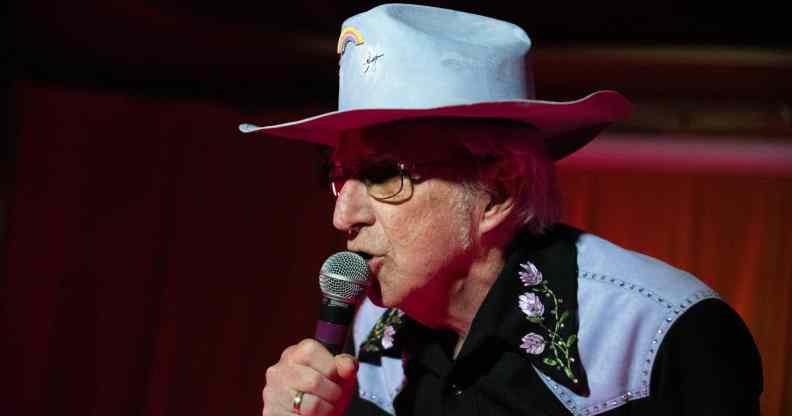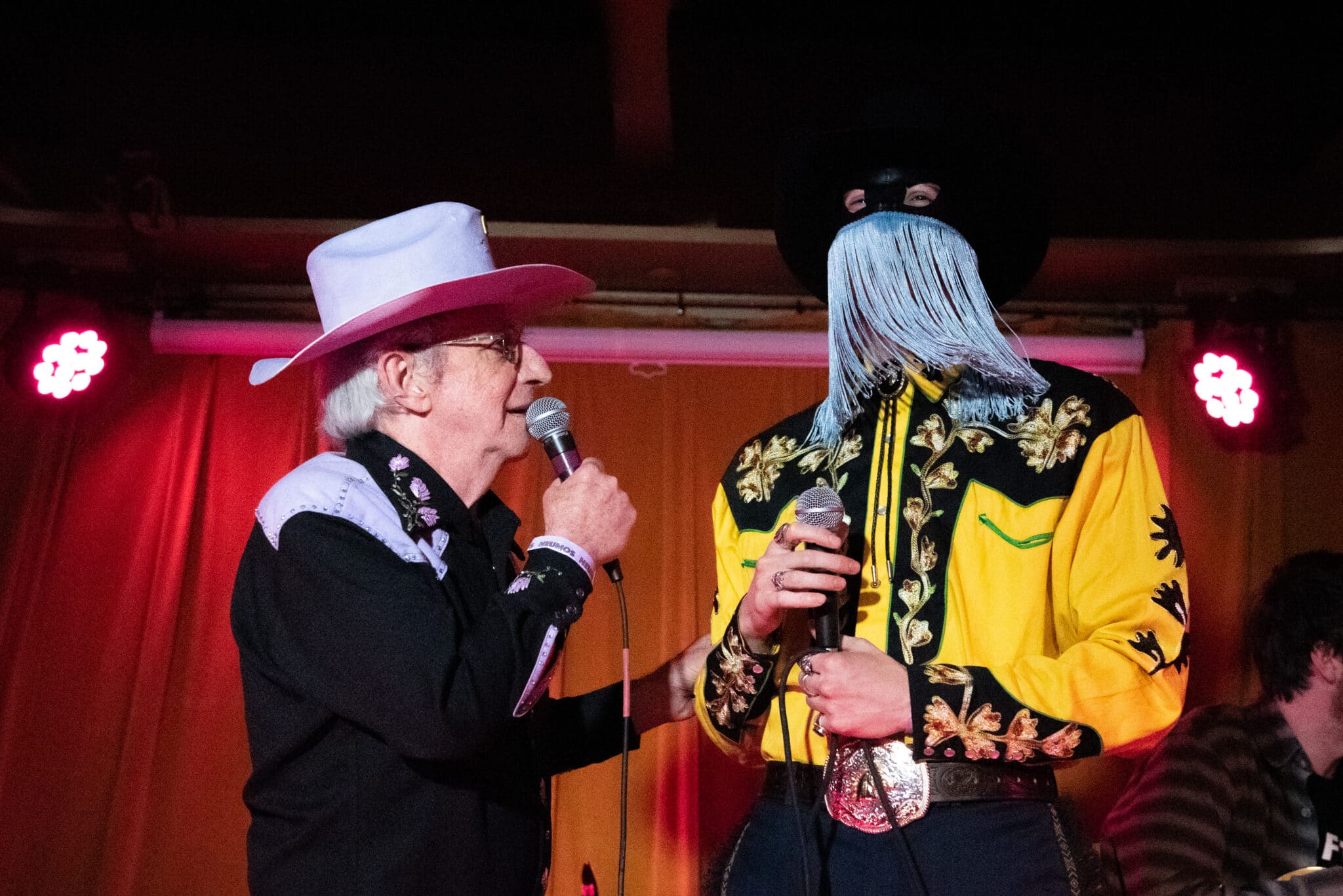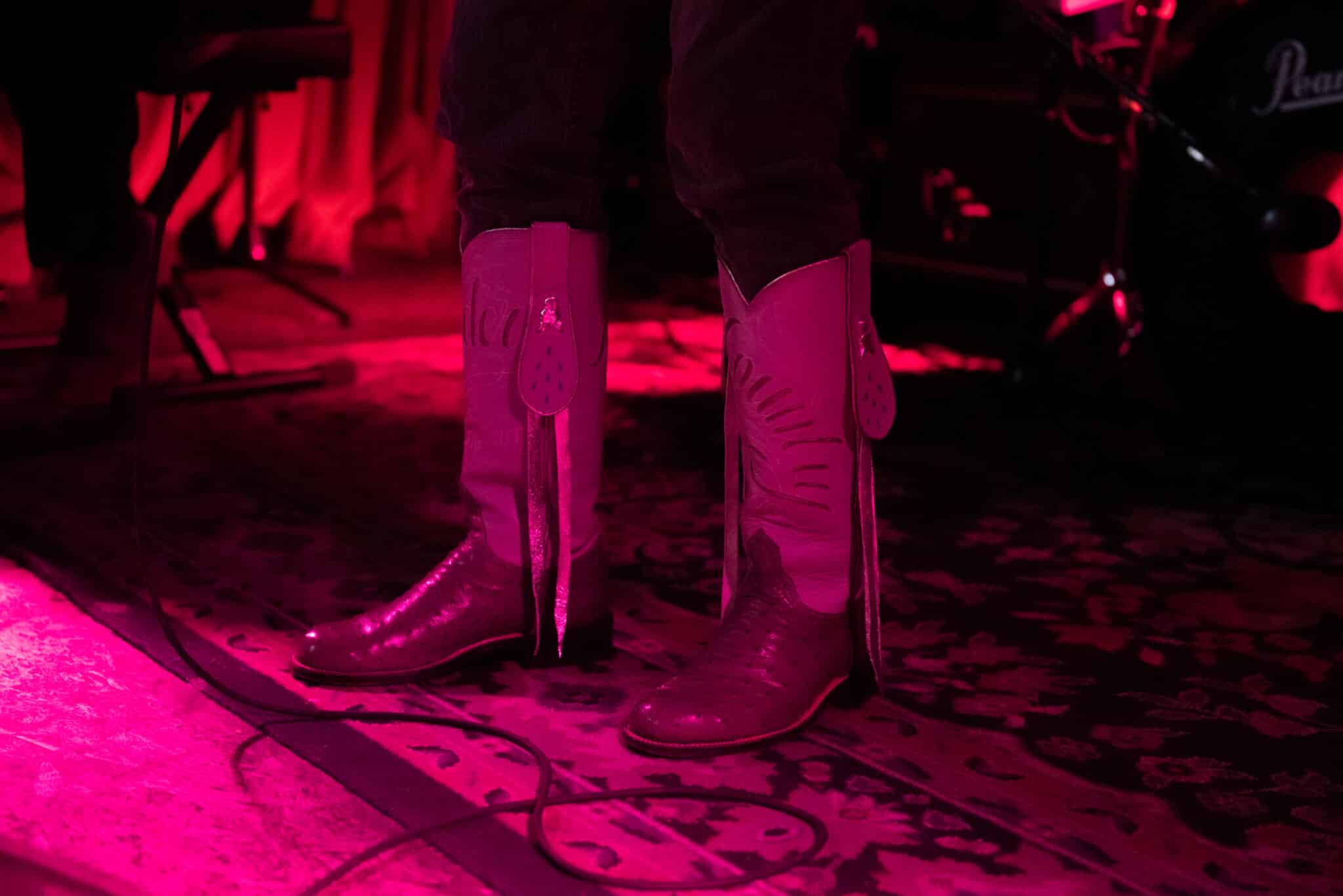Patrick Haggerty: Pioneering singer who recorded first gay country songs dies aged 78

Lead singer Patrick Haggerty of Lavender Country performs live on stage at Barboza on May 18, 2019 in Seattle, Washington. (Getty)
Tributes for Lavender Country’s lead singer Patrick Haggerty have poured in after he passed away on Monday (31 October).
The LGBTQ+ country artist passed away aged 78 after suffering from a stroke several weeks ago according to a Lavender County Facebook post.
“This morning, we lost a great soul,” the post read. “He was able to spend his final days at home surrounded by his kids and lifelong husband.”
Since then, thousands of fans and well-wishers have paid tribute to one of the first openly gay country musicians.
“My deepest condolences to his husband and family and all those who loved him,” one user said. “What a treasure and what a legacy.”
Others thanks Patrick for his tireless work with LGBTQ+ advocacy, saying that he was a “wonderful human” and a “force of good.”
“He helped make the world a better place and was an inspiration to everyone he met,” another user said. “I’m so grateful I was able to call him a friend.”

Patrick Haggerty performs with Orville Peck. (Getty)
An LGBTQ+ icon through and through
Born in 1944 in the rural area of Port Angeles, Washington, much of Patrick Haggerty’s life and career was defined by his staunch activism towards LGBTQ+ equality.
His parents – both of whom were incredibly accepting of his sexuality – encouraged him to live his truth unapologetically despite the societally volatile view of homosexuality during his childhood.
After being discharged from the military in 1966 for being gay, Haggerty turned to a local chapter of the Gay Liberation Front where he fought for equality alongside gay rights activists through his music and artistry.
His unique brand of socialist gay country music became something of an anthem for the local counter-culture movements of the 1960s and 1970s and would eventually lay the foundations for Lavender County’s formation in 1972.
The group’s first titular album was funded by the Gay Community Social Services of Seattle, which printed just 1,000 copies upon its original release, and would be reissued and revisited across the LGBTQ+ band’s decades-long lifespan.
Lavender County remained consistently popular among sections of the queer community for almost 50 years – save for a few rocky break-ups in 1976, during which, Haggerty attempted to run for political office in Seattle – and are regarded as cult icons.
Haggerty’s musical prowess was complimented by his larger-than-life personality that was defined by his unrelentingly queer taste in cowboy attire. Rare was there a time that he was seen without his iconic black and purple nudie suit, complete with a matching cattleman and old-fashioned cowboy boots.

Patrick Haggerty’s cowboy boots were as iconic as his infectious personality. (Getty)
It was this quality of unapologetic charisma that drew him to his husband Julius “J.B.” Broughton – a retired Navy officer who began dating Haggerty in 1987.
The two married in the mid-2000s and, as Haggerty put it himself, were “madly and gayly in love” ever since.
In the later portion of his career, Haggerty became interested in filmmaking, creating several short films including These C*cksucking Tears, a 2016 short about growing up as a gay musician.
All the while, his love for music didn’t falter, continuing to create incredible songs such as a 2020 hit with Trixie Mattel titled Stranger.
Lavender County band members collectively paid their respects to Haggerty on social media, sharing their own stories of how his dedication in the face of LGBTQ+ stigma cemented him as a unique force for good.
“Patrick Haggerty was one of the funniest, kindest, bravest, and smartest people I ever met,” Don Giovanni Records, who worked with Lavender County in their later run, wrote in a statement. “He never gave up fighting for what he believed in, and those around him who he loved and took care of will continue that fight.”
Folk singer Jake Blount said Haggerty was a “musical hero to my generation” and added he was going to “miss your energy, you screaming Marxist b*tch.”

